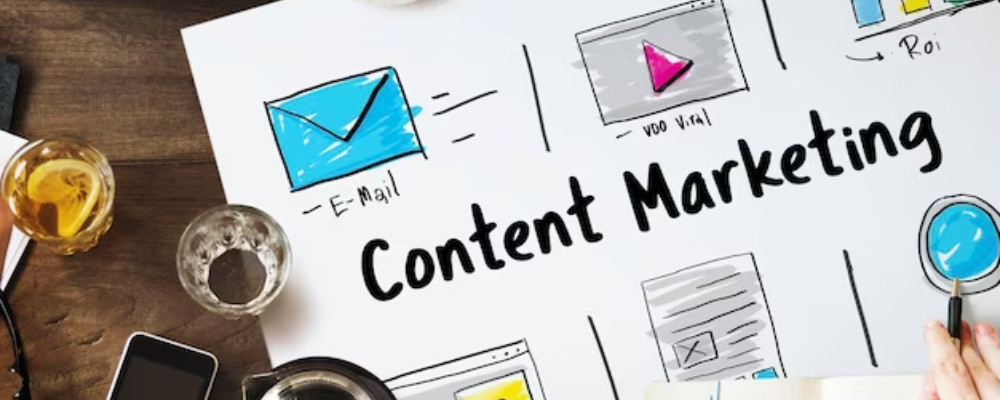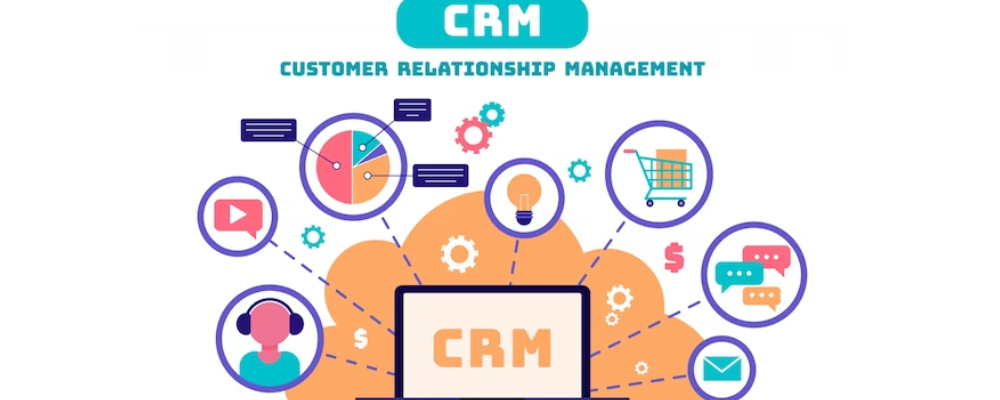In today’s competitive business landscape, the ability to generate high-quality leads is nothing short of indispensable for sustained growth and success. For both experienced entrepreneurs and those venturing into the business world, it’s undeniable that leads serve as the vital sustenance for your enterprise.
Lead generation is the initial step in the customer acquisition process, representing the vital bridge between potential customers and the actual conversion of these prospects into paying clients. Every business, regardless of its size or industry, relies on the continuous influx of potential customers or leads to sustain and expand its operations. In an environment where consumers are becoming progressively discerning, the absence of a robust lead generation strategy could potentially hinder your business’s ability to flourish.
As we navigate the various strategies, techniques, and technologies that can empower you to generate leads like a seasoned pro, you’ll gain insights into the art of attracting, engaging, and converting leads into loyal customers. Join us on this journey, as we explore the essential principles and innovative tactics that will help your business thrive in the ever-evolving realm of lead generation.
Grasping the Concept of Lead Generation
Leads are potential customers who have shown interest in your products or services by taking actions like signing up, making inquiries, or engaging with your business. They come in various forms, such as Marketing Qualified Leads (MQLs), Sales Qualified Leads (SQLs), and Cold Leads, each with different levels of readiness to buy.
Quality leads are more likely to convert into paying customers, resulting in higher conversion rates, reduced wasted resources, increased customer satisfaction, and better long-term relationships. Prioritizing quality over quantity involves lead scoring, segmentation, and personalized engagement. The sales funnel concept divides the customer journey into stages, from awareness to purchase intent. It helps businesses tailor their strategies to address leads’ specific needs at each stage, guiding them towards conversion.
Proven Lead Generation Strategies
Content Marketing
Content marketing represents a fundamental building block of contemporary lead generation. Its essence lies in the development of content that is not only valuable but also informative and captivating, strategically designed to captivate and maintain the attention of your intended audience. The following are key content marketing tactics:

Blogging: Maintaining a blog allows you to regularly publish relevant content that addresses the pain points and interests of your audience. Through informative and engaging blog posts, you can establish your brand as an authority in your industry and capture the attention of potential leads.
Ebooks and Whitepapers: In-depth, downloadable resources such as ebooks and whitepapers offer valuable information in exchange for a lead’s contact information. These content pieces are effective in generating leads interested in in-depth information or solutions.
Video Marketing: The emergence of video content has marked a formidable and influential instrument in the realm of lead generation. Informative videos, product demonstrations, and engaging visual storytelling can capture the attention of your audience and lead them further down the sales funnel.
Social Media Marketing
Social media platforms are fertile ground for lead generation, offering vast audiences and various tools for engagement:
Leveraging Social Platforms: Maintaining an active presence on platforms like Facebook, Twitter, LinkedIn, and Instagram allows you to engage with potential leads, share content, and build relationships. Engaging posts, polls, and discussions can attract and nurture potential customers.
Paid Advertising: Social media platforms offer targeted advertising options that can effectively reach your ideal audience. Paid advertising campaigns, encompassing sponsored posts and precisely targeted ads, possess the capability to steer potential leads toward your content or landing pages.
Email Marketing
Email marketing remains a robust strategy for lead generation, enabling personalized communication with your audience:
Building Targeted Lists: Effective lead generation starts with building a list of subscribers interested in your offerings. Employ opt-in forms and incentives to capture email addresses and segment your list based on interests and behaviors.
Effective Email Campaigns: Crafting compelling email campaigns that deliver value and relevant content is key. Nurture leads through email sequences, distribute special offers, and initiate interactive dialogues to establish trust and stimulate conversions.
Search Engine Optimization (SEO)
Search Engine Optimization is essential for increasing your online visibility and attracting organic traffic:

Optimizing for Organic Traffic: SEO tactics, such as keyword research, on-page optimization, and high-quality content creation, improve your website’s ranking in search engine results. Higher visibility can lead to more organic traffic and, in turn, more potential leads.
Local SEO: For businesses with physical locations, local SEO is vital. Optimizing your online presence for local searches can attract nearby customers who are actively seeking your products or services.
Webinars and Events
Hosting webinars and events, whether in person or virtually, can be instrumental in lead generation:
Hosting Engaging Webinars: Webinars provide a platform for in-depth discussions, presentations, and audience interaction. They allow you to showcase expertise, engage with your audience, and collect leads during the registration process.
In-Person and Virtual Events: Participating in or hosting events, conferences, or trade shows, whether physical or virtual, presents networking and lead generation opportunities. Attendees often express interest in learning more about your offerings.
When executed with strategic precision, these all-encompassing lead generation strategies prove adept at guiding potential leads into your sales funnel. The pivotal factor involves comprehending your target audience, customizing your methods, and persistently evaluating and enhancing your endeavors to optimize outcomes.
Leveraging Technology
In the ever-evolving landscape of lead generation, technology plays a pivotal role in streamlining processes, improving efficiency, and enhancing the overall effectiveness of your strategies. Here, we explore the technological tools and methods that can empower businesses to generate leads like a pro.
Customer Relationship Management (CRM) Systems
Customer Relationship Management (CRM) systems are invaluable tools for managing and nurturing leads, as well as fostering stronger relationships with existing customers. They offer a centralized platform for organizing and tracking interactions, making them a critical component of effective lead generation:

- CRMs allow you to record and monitor the progress of leads through the sales funnel. This data provides insights into lead behavior and helps you tailor your marketing and sales efforts.
- CRM systems enable personalized and timely communication with leads. Automated email sequences, reminders, and task management features can help nurture leads, ensuring they receive the right messages at the right times.
- Segmentation features within CRMs allow you to categorize leads based on various criteria such as demographics, behavior, and engagement. This process of segmentation streamlines the precision of marketing efforts and outreach, enabling a highly targeted approach.
- Many CRMs can be integrated with other tools and platforms, such as email marketing software and analytics tools, streamlining your lead generation processes.
Marketing Automation Tools
Marketing automation tools are a game-changer for businesses aiming to scale their lead generation efforts while maintaining personalization and efficiency:
- Automation tools can assign scores to leads based on their behavior, helping you identify high-potential leads that require immediate attention.
- Marketing automation allows for the creation of email sequences and drip campaigns that deliver timely, personalized content to leads, nurturing them through the sales funnel.
- These tools can schedule and publish posts on social media platforms, helping you maintain a consistent online presence and engage with your audience.
- Marketing automation platforms often include robust analytics, providing insights into the performance of your campaigns and lead generation strategies.
A/B Testing and Analytics
A/B testing and analytics are critical for refining lead generation strategies and optimizing conversion rates:
- A/B testing involves comparing two or more variations of a webpage, email, or ad to determine which performs better. By experimenting with different elements like headlines, images, or call-to-action buttons, you can identify the most effective ways to capture and convert leads.
- Tools like Google Analytics provide comprehensive data about website visitors, traffic sources, and user behavior. These insights help you understand how leads find and interact with your site, enabling you to make data-driven improvements.
- Analytics tools allow you to track the journey of leads through the sales funnel, from initial contact to conversion. This data helps you pinpoint areas where leads might drop off or encounter obstacles.
- Analytics enable you to assess the return on investment (ROI) of your lead generation efforts. By tracking costs and revenues, you can determine the effectiveness of various strategies and make informed decisions about resource allocation.
Lead Nurturing
Fostering and fortifying relationships with potential customers takes center stage in lead nurturing, constituting a pivotal facet of the lead generation process. Building trust and credibility over time is key, as it makes leads more likely to choose your products or services. Additionally, nurturing ensures long-term engagement, keeping leads in your sales funnel until they are ready to make a purchase.
Drip email campaigns, involving automated sequences of targeted emails at specific intervals, are a popular method for lead nurturing. They guide leads through the buyer’s journey, providing relevant content at each stage to nurture their interest. Personalization, based on lead behavior, interests, and demographics, enhances engagement, fostering a sense of connection.Moreover, the practice of segmentation empowers you to personalize content for distinct groups, guaranteeing that each lead obtains information that aligns closely with their unique needs and interests.
Turning Leads into Customers
Converting leads into customers stands as the ultimate goal in any successful lead generation endeavor. To achieve this objective, several critical steps come into play. First, qualifying leads entails the identification of those most likely to become paying customers, often achieved through lead scoring and the establishment of specific readiness criteria. Following that, effective sales strategies are essential, encompassing alignment with the sales funnel stage, implementation of consultative selling techniques, and the establishment of trust with potential customers. Lastly, the closing of the deal, the conclusive step, involves employing closing techniques, addressing objections or concerns, and offering the right incentives to motivate leads into taking action.
Measuring and Analyzing Results
Measuring and analyzing the results of your lead generation efforts is essential for ongoing success. Tracking key metrics allows you to assess the effectiveness of your lead generation strategies. Some of the crucial metrics to monitor include conversion rates, click-through rates, lead acquisition cost, customer acquisition cost, and ROI. These metrics furnish valuable perspectives on the effectiveness of your campaigns and enable you to pinpoint areas in need of enhancement.

Once you’ve collected data on your lead generation efforts, it’s vital to adjust your strategies based on your findings. Whether it’s optimizing underperforming campaigns, refining your targeting, or altering your content, adaptation is essential to ensure your lead generation efforts remain effective in a constantly evolving landscape.
Conclusion
Acquiring expertise in the craft of lead generation stands as an essential proficiency for any business aiming to prosper in the digital era. With a well-rounded arsenal of strategies, a deep understanding of your target audience, and the judicious use of technology, you can “Generate Leads Like a Pro.” Remember that success in lead generation is an ongoing journey, one that requires consistent adaptation and refinement. By implementing these proven tactics and staying committed to delivering value to your leads, you can ensure a steady flow of potential customers and, ultimately, drive your business towards sustained growth and success.




